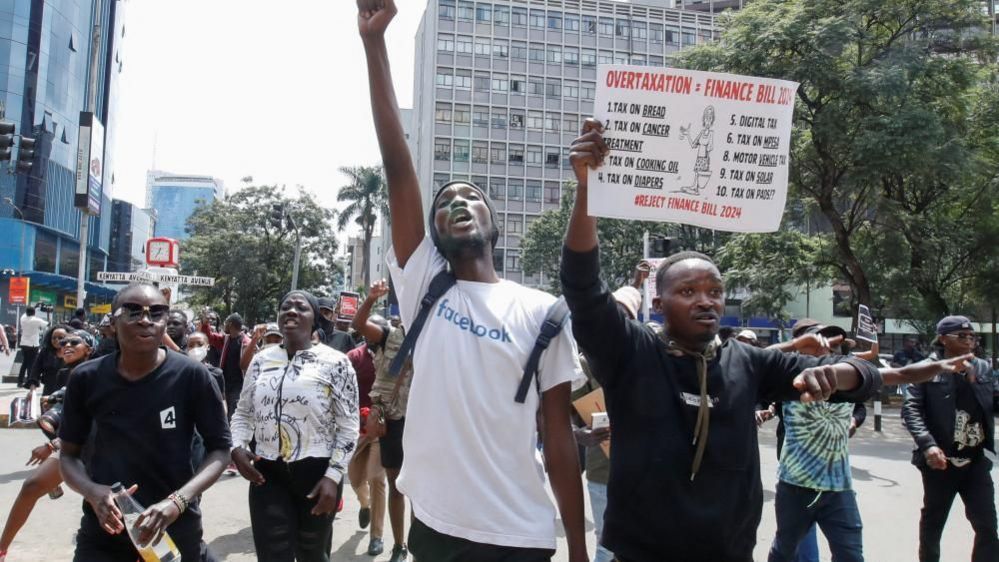
Kenya has revoked several proposed taxes from this year’s contentious finance bill following widespread public outrage, announced amidst clashes between protesters and police in Nairobi.
The move by lawmakers, including the scrapping of a 16% bread levy along with increased taxes on cooking oil and mobile money services, marks a significant reversal in response to mounting concerns over rising living costs.
President William Ruto, who has been in office since 2022, initially aimed to address Kenya’s substantial national debt through various new taxes, yet faced strong opposition over fears of economic stagnation and potential job losses.
The decision to retract these measures, disclosed by parliamentary finance committee chairman Kuria Kimani in a press conference attended by President Ruto and ruling coalition lawmakers, reflects a shift to shield citizens from additional financial burdens.
Among the axed proposals were taxes on motor vehicles and an eco levy targeting environmentally impactful products, which had provoked criticism for potentially inflating prices on essential items like nappies and mobile phones. Instead, the revised bill will limit the eco tax to imported goods exclusively.
The government’s retreat on these fiscal plans, widely perceived as a response to public pressure, represents a setback for President Ruto’s administration. Despite his recent calls for greater tax acceptance, arguing current rates are insufficient, the move underscores ongoing resistance to further financial obligations among Kenyan citizens.
As discussions on the finance bill continue, tensions remain high in Nairobi where protests have resulted in multiple arrests of demonstration organizers by the police.
